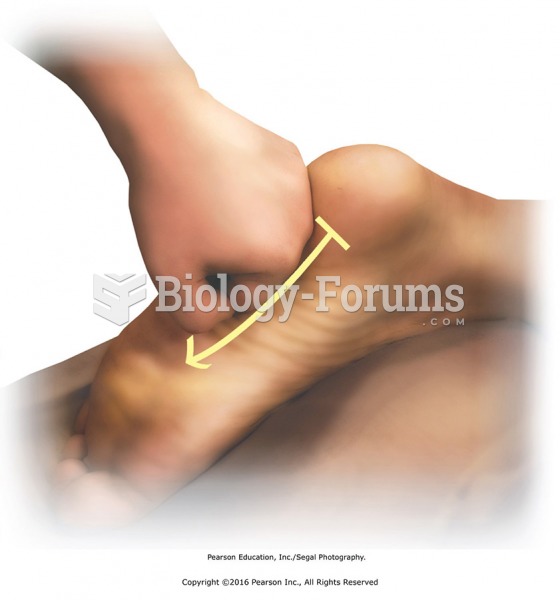|
|
|
To maintain good kidney function, you should drink at least 3 quarts of water daily. Water dilutes urine and helps prevent concentrations of salts and minerals that can lead to kidney stone formation. Chronic dehydration is a major contributor to the development of kidney stones.
Although puberty usually occurs in the early teenage years, the world's youngest parents were two Chinese children who had their first baby when they were 8 and 9 years of age.
Throughout history, plants containing cardiac steroids have been used as heart drugs and as poisons (e.g., in arrows used in combat), emetics, and diuretics.
Thyroid conditions may make getting pregnant impossible.
Approximately 500,000 babies are born each year in the United States to teenage mothers.
 Chinese workers on a railway in the far West. “Without them,” Leland Stanford, president of the Cent
Chinese workers on a railway in the far West. “Without them,” Leland Stanford, president of the Cent
 Separate the metatarsals. Create space between the metatarsals by holding onto the sides of the foot ...
Separate the metatarsals. Create space between the metatarsals by holding onto the sides of the foot ...





